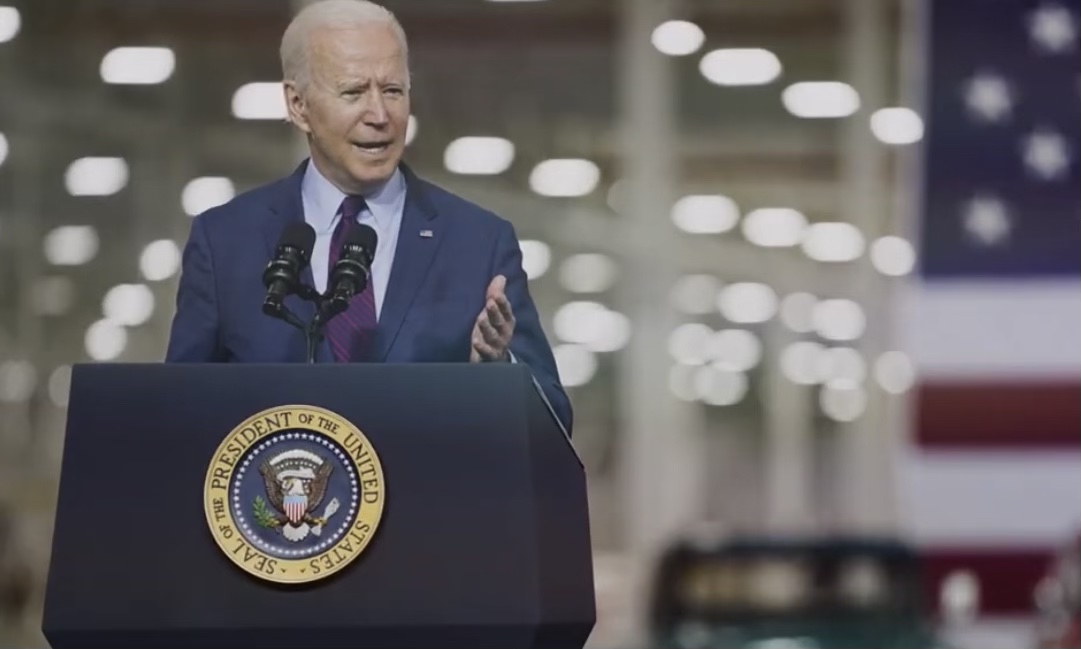Two Years of President Biden’s Bipartisan Infrastructure Law

FOR IMMEDIATE RELEASE: November 15, 2023
PRESS CONTACT: McKenzie Wilson, [email protected], 773-715-0169
TWO YEARS OF PRESIDENT BIDEN’S BIPARTISAN INFRASTRUCTURE LAW
WASHINGTON, D.C. — Building Back Together Executive Director Mayra Macías released the following statement on the second anniversary of President Biden signing the Infrastructure Investment and Jobs Act — also known as the Bipartisan Infrastructure Law — into law:
“Two years ago today, President Biden signed the Bipartisan Infrastructure Law, a major milestone in the fight to build a stronger and more resilient America. This historic legislation has been a driving force behind the rejuvenation of our nation’s infrastructure, bringing about transformative changes that benefit every American.
From repairing our crumbling infrastructure to expanding access to high-speed internet, the Bipartisan Infrastructure Law will continue to shape our nation for generations to come. That’s not to mention that following a global pandemic, this historic legislation has spurred domestic manufacturing, and new projects we’re still seeing today, creating good-paying union jobs, and getting Americans back to work.
Perhaps most of all, the Bipartisan Infrastructure Law exemplifies that investing in America is not a partisan issue. Building Back Together looks forward to continuing to uplift the historic impacts of the Bipartisan Infrastructure Law and the opportunities it will create for our nation’s future.”
Over the past year, the Bipartisan Infrastructure Law signed into law by President Biden has made a major impact across the country. Thanks to the Bipartisan Infrastructure Law:
- 135,800 miles of roads and 7,800 bridge repair projects have been launched across the country
- 21 million low-income households can now access free or discounted high-speed internet service through the Affordable Connectivity Program
- 445 port and waterway projects have been funded, strengthening our supply chains, speeding up the movement of goods, and lowering costs of American goods
- 190 airport terminal projects have been funded to modernize and expand American airports. 18 terminals are currently under construction, and 8 more have been completed.
- 1,200 drinking water and wastewater projects across the country have been funded to replace hundreds of thousands of lead service lines and improve water quality
- 8.7 million acres of land have had hazardous fuel material removed through funding from the Bipartisan Infrastructure Law and other sources to protect communities from wildfires
- 6,000 orphaned oil and gas wells have been plugged to address pollution, and more.
Read about the full impacts of the Bipartisan Infrastructure Law across the country and by state on the White House’s Build.Gov.
The Bipartisan Infrastructure Law has funded more than 40,000 projects across 4,500 communities in all 50 states, Puerto Rico, and Washington D.C. See below for a sampling of what Americans across the country have read about its impact since it was signed into law by President Biden:
[Arizona] KVOA: New bipartisan infrastructure law invests millions into Arizona
Today it was announced that the bipartisan infrastructure law, led by Kyrsten Sinema and Mark Kelly, will invest $44.3 million dollars in Apache Junction and $4.57 million dollars in Buckeye. These investments will go towards flood prevention and mitigation in both towns.
[Florida] WTSP: Florida to receive up to $58M in federal funding for rail infrastructure and safety program
The U.S. Department of Transportation’s Federal Railroad Administration is investing more than $1.4 billion from President Biden’s Infrastructure Law into projects that improve rail transit in 35 states. Florida is one of those states, and it stands to receive up to $58 million in federal funds to update its rail infrastructure.
[Georgia] The Atlanta Journal-Constitution: Georgia Power, Atlanta companies receiving federal hydropower grants
Georgia Power and two other Atlanta-based companies are receiving federal grant funding from the Department of Energy (DOE) for a series of projects using existing dams to advance hydropower, the agency announced Wednesday. The money comes from a $13 million pot carved out for projects nationwide by 2021′s Bipartisan Infrastructure Law and is part of an effort by President Joe Biden’s administration to accelerate the country’s transition away from burning fossil fuels.
[Michigan] Oakland Press: Column: Smart investments can bridge Michigan’s skills gap & digital divide
But in metropolitan areas long defined by inequality – for instance, average incomes in the Pontiac area are only half those just across Route 24 in Bloomfield Hills – leadership and vision will be needed to turn “prosperity for some” into “prosperity for all.” Michigan’s all-out push for universal internet access is a smart place to start. More than $1.5 billion from President Joe Biden’s bipartisan infrastructure bill gives our state a once-in-a-generation opportunity to bend the arc of progress in a direction that lifts up all communities statewide – rural and urban, rich and poor, Black and White.
[Ohio] The Business Journals: Feds pick an Ohio project for big regional hydrogen hub
Regional hydrogen hubs are the Biden administration’s approach to meeting net-zero carbon emission goals by 2050 across the country. The hub funding from the Bipartisan Infrastructure Law is designed to spark public-private partnerships that decarbonize heavy industries like power generation, metals and chemical manufacturing and other challenging sectors. It’s also hoped to use natural gas, renewables and nuclear to create hydrogen, a low or no carbon energy source at a competitive price.
[Wisconsin] Wisconsin Ag Connection: $20M Allocated by Biden-Harris to Research Degraded Ecosystem Restoration
The Biden-Harris Administration announced that the U.S. Department of Agriculture’s Forest Service is investing $20 million to fund 30 research studies to develop new technologies and data that will increase restoration of degraded forests, grasslands, and watersheds. The funding, provided by President Biden’s Bipartisan Infrastructure Law, also supports shared efforts between agency scientists, tribes, states, academia, and non-government organizations.